Say What?
-
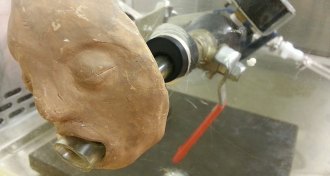 Health & Medicine
Health & Medicine‘Vomiting device’ sounds gross but it helps study infections
Scientists created a “vomiting device” to study how norovirus spreads through the air.
-
 Health & Medicine
Health & MedicineThe five basic tastes have sixth sibling: oleogustus
Scientists dub the taste of fat oleogustus.
-
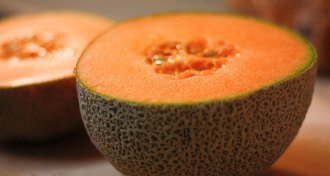 Genetics
GeneticsMelonomics: Sounds like a cancer, smells like a melon
The project that published the first melon genome dubbed itself melonomics.
-
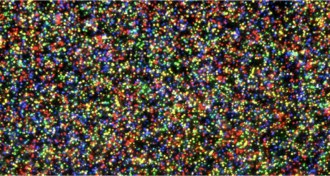 Genetics
GeneticsEnormous quantities may soon be called ‘genomical’
Genetic data may soon reach beyond astronomical proportions.
-
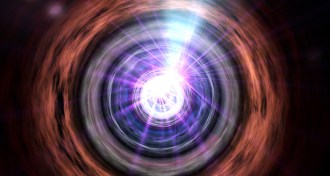 Astronomy
AstronomySource of blazars’ super brightness comes into focus
Astronomers take a close look at a blazar, a galaxy whose central black hole emits gamma rays and other high-energy material toward Earth.
By Andrew Grant -
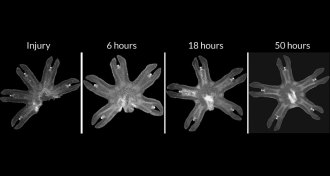 Animals
AnimalsMoon jellies muscle their way to recovery
Symmetrization, using rapid muscle movements to repair body symmetry, is the go-to healing mechanism for the limbed stage of moon jellyfish.
-
 Astronomy
AstronomyLit-up gas clouds hint at galaxies’ violent pasts
Voorwerpjes, tendrils of gas that orbit galaxies, continue to glow tens of thousands of years after being blasted with ultraviolet radiation.
-
 Animals
AnimalsWhether froglets switch sexes distinguishes ‘sex races’
Rana temporaria froglets start all female in one region of Europe; in another region, new froglets of the same species have gonads of either sex.
By Susan Milius -
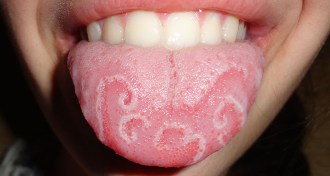 Life
Life‘Geographic tongue’ creates unique topography
A condition called ‘geographic tongue’ makes mouth organ appear maplike.
-
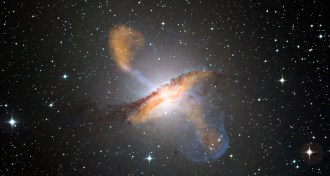 Astronomy
Astronomy‘Supernova sweeping’ cleans up a galaxy’s gas
Supernovas might sweep the remaining gas out of a galaxy after a supermassive black hole triggers the end of star formation.
-
 Neuroscience
NeuroscienceDecoding sommeliers’ brains, one squirt of wine at a time
Researchers use a ‘gustometer’ to control wine portions in experiments comparing the brains of sommeliers and novices.
-
 Psychology
PsychologyEmotions go unnamed for some with eating disorders
A portion of women with eating disorders have a separate problem recognizing their own emotions, a condition called alexithymia.
By Bruce Bower